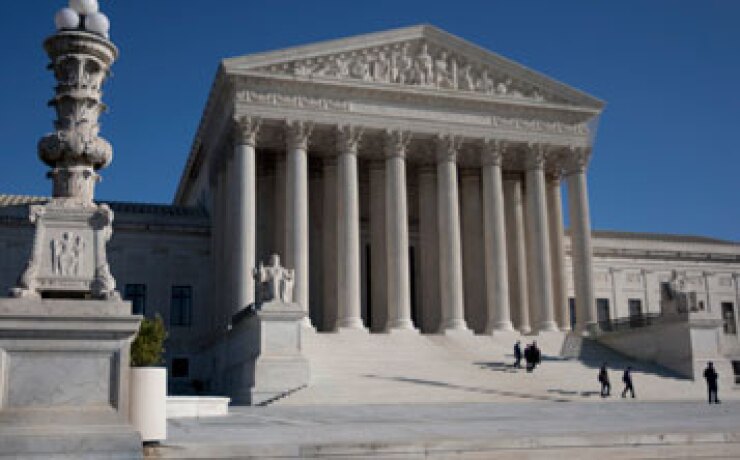
WASHINGTON — The Supreme Court has declined to hear the case of ex-Miami, Fla. budget director Michael Boudreaux, sending the former official and the city back to court to fight a Securities and Exchange Commission lawsuit in a move some lawyers fear could hurt municipal officials' abilities to do their jobs.
The nation's highest court on Monday declined to take up Boudreaux's appeal of the U.S. Court of Appeals for the Eleventh Circuit's 2014 decision that a federal district court in Miami was correct to find that the doctrine of "qualified immunity" does not protect Boudreaux from an SEC enforcement action. That lawsuit, filed in July 2013, seeks to levy financial penalties against both Boudreaux and the city in connection with what the SEC alleges was a fraudulent 2009 bond offering. Both the city and Boudreaux have denied any wrongdoing.
Qualified immunity is a well-established legal concept that the Supreme Court has said protects government officials from personal liability in cases where their conduct "does not violate clearly established statutory or constitutional rights." Boudreaux is charged with initiating transfers between different city funds in an effort to conceal a general fund deficit.
The Supreme Court declining to take the case means that the case will go back to the federal district court where it started, and where it has been on pause since early 2014 while Boudreaux exhausted the appeals of his effort to have the charges against him thrown out. International Municipal Lawyers Association executive director and general counsel Charles Thompson said his group, a non-profit which represents local government lawyers and which filed a friend of the court brief in this case, is concerned that allowing the district court's ruling to stand sets an example that hurts municipalities and taxpayers.
"The lower court ruling leaves government finance officials exposed to personal liability in an area of law that is both complex and untested," Thompson told The Bond Buyer. "The policy behind the immunity that protects police officers and other government officials who act within the boundaries of clearly defined law ought to extend to those who perform the mundane but important duties of balancing a budget."
Thompson added that many local governments have laws that automatically remove officials who overspend their budgets, and that officials like Boudreaux face tremendous pressure to continue providing services while meeting the requirement that expenses not exceed revenues.
"Penalizing personally local government finance officials who try to meet those requirements will lead to delayed decision-making and harm the taxpayers and investors that the SEC intends to protect," Thompson said. "While we support the SEC in its mission of protecting investors and insuring that disclosures are accurate, we believe that the SEC may not fully understand the complexities of local government law and the interrelationship between the law that applies to local governments and local government finance."
The government argues that the Boudreaux's alleged conduct was deliberate wrongdoing and does not fall under the umbrella of qualified immunity protection.





